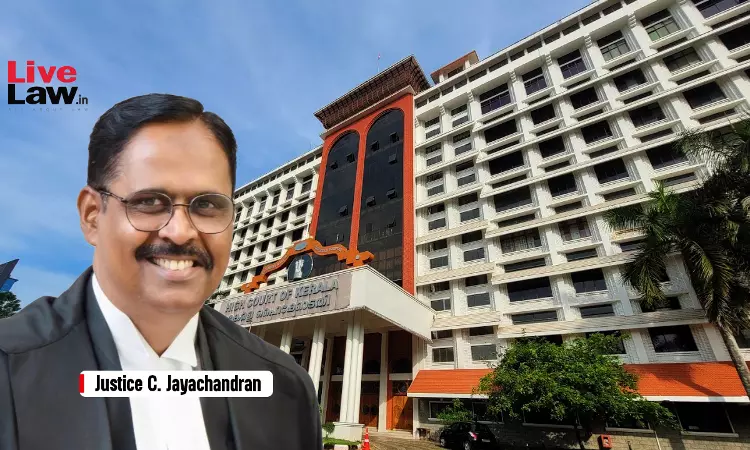- Home
- /
- High Courts
- /
- Kerala High Court
- /
- No Room To Order Concurrent Running...
No Room To Order Concurrent Running Of Sentences Where Two Offences Have No Connection, Transactions Are Completely Different: Kerala HC
Tellmy Jolly
7 March 2025 10:30 AM IST
The Kerala High Court has held that Section 427 of CrPC, which empowers Courts to order concurrent running of subsequent sentences, has no application when a person is convicted for different offences in two different crimes committed in completely different transactions.Justice C. Jayachandran observed that the Petitioner-convict's contention that the sentencing court passing the...
The Kerala High Court has held that Section 427 of CrPC, which empowers Courts to order concurrent running of subsequent sentences, has no application when a person is convicted for different offences in two different crimes committed in completely different transactions.
Justice C. Jayachandran observed that the Petitioner-convict's contention that the sentencing court passing the subsequent sentence should have suo moto invoked Section 427 of CrPC, was far-fetched and not liable to be recognized in law.
Court stated, “That apart, this Court also notice that the offences in question has no semblance of connection with each other. Both crimes are two different, independent instances. The previous conviction was with respect to the offences under Sections 29 and 21(c) of the N.D.P.S Act. There, the petitioner/accused was convicted by a Sessions Court at Delhi; whereas, the instant crime is with respect to the various offences under the Penal Code, as also, under Section 27(1) of the Arms Act, wherein the conviction has been entered into by the Judicial First Class Magistrate Court-II, Mavelikkara. The transactions are completely different. There exists no room for giving concurrency, insofar as the running of punishment is concerned.”
Section 427 CrPC contemplates consecutive running of sentences in a case where a person who is already undergoing sentence of imprisonment is sentenced on a subsequent conviction to imprisonment or imprisonment for life. Sentences are to run consecutive unless the sentencing court specify that the subsequent sentence will run concurrently with the previous one. Unless the sentencing court specifies so, the subsequent sentence will be deemed as consecutive.
The petitioner herein was convicted by Judicial First Class Magistrate Court-II, Mavelikkara under Sections 143, 147, 148, 452, 324, 506(ii) and 109, read with Section 149 of the IPC and Section 27(1) of the Arms Act on November 20, 2017.
He was also previously convicted in another case under the NDPS Act by Special Judge, New Delhi on October 17, 2015. The punishment imposed was ten years of rigorous imprisonment and one lakh rupees fine.
The petitioner submitted that the Magistrate have committed a mistake by not invoking Section 427 of CrPC. It was submitted that the Magistrate should have suo moto invoked Section 427 CrPC, otherwise it would affect the rights of the Petitioner. He also referred to the maxim actus curiae neminem gravabit, meaning that the act of the Court shall prejudice no one.
The Public Prosecutor submitted that consecutive run of sentence is the rule, and there must be a specific direction for the sentences to run concurrently.
The Court noted that the Petitioner who was convicted on October 17, 2015 for 10 years rigorous imprisonment under the NDPS Act was released on January 13, 2025.
The High Court observed that sentences shall run consecutively unless the Court that awards the subsequent conviction specifically directs that the subsequent sentence shall run concurrently with the previous sentence.
In the facts of the case, the Court noted that Magistrate Court had not granted any such direction, despite knowledge of the previous conviction. Court added, “That can only be taken as a conscious call taken by the learned Magistrate. In the circumstances, the petitioner's claim has no legs in law.”
Relying upon Apex Court decision in Mohd. Zahid v. State through NCB (2022), the Court stated that concurrent sentence cannot be invoked as a general rule when there are different transactions, different crime numbers and when the cases have been decided by different judgments.
The High Court further stated that there was no need to invoke maxim actus curiae neminem gravabit since there was no mistake committed by the sentencing Court.
As such, the petition was dismissed.
Case Title: B Ajai v State of Kerala
Case No: CRL.MC NO.8795 OF 2024
Citation: 2025 LiveLaw (Ker) 165



